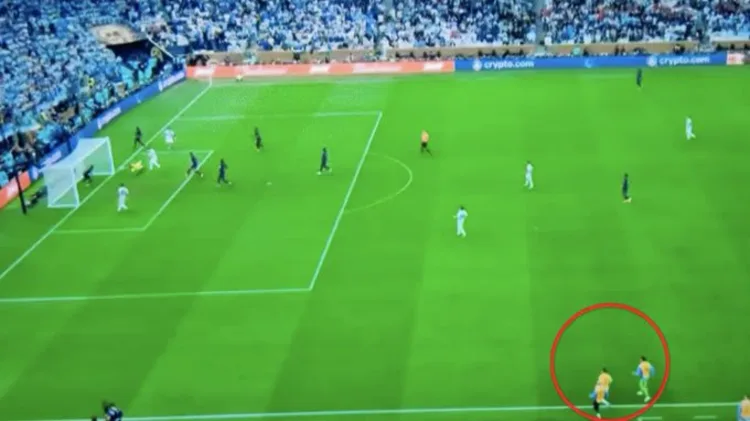-
News
- 20 hours ago
Argentina had 12 players on the pitch as Messi scored key World Cup final goal

Lionel Messi’s second goal in the World Cup final should not have stood if the laws of the game had been properly applied.
Argentina won the trophy for the third time after a titanic duel with France, with the match finishing 3-3 after extra-time. The South Americans then went on to win the competition on penalties, 4-2.
The fixture will be remembered for the brilliant head-to-head battle between Messi and Kylian Mbappe, who became just the second player in history to score a hat-trick in a World Cup final – but Messi’s second goal, which put Argentina 3-2 up in extra-time, should not have stood.
MORE: The debate is over - Lionel Messi is the GOAT
It was a goal given by goal line technology, which buzzed referee Szymon Marciniak watch as Messi slammed home the rebound to Lautaro Martinez’s initial shot. VAR had to check the goal for offside, but the Inter striker had timed his run to perfection beyond the back line.
But despite these checks, the match officials overlooked the fact that Argentina had 12 players on the field of play when Messi scored his fateful goal.
Images showed that at least one substitute had strayed onto the playing surface when the Argentine delivered the coup de grace to France.

What trophies has Lionel Messi won in his career?
What the law says
The laws of the game state: “The referee must disallow the goal if the extra person was: a player, substitute, substituted player, sent-off player or team official of the team that scored the goal.”
Instead of awarding Argentina a goal, play should have restarted with a direct free kick to France.
Of course, it would have been crazy if the goal had been chopped off given the substitute had no bearing on what happened on the field, but by the letter of the law, the referee made an incorrect and potentially game-changing decision in Argentina’s favour.



















